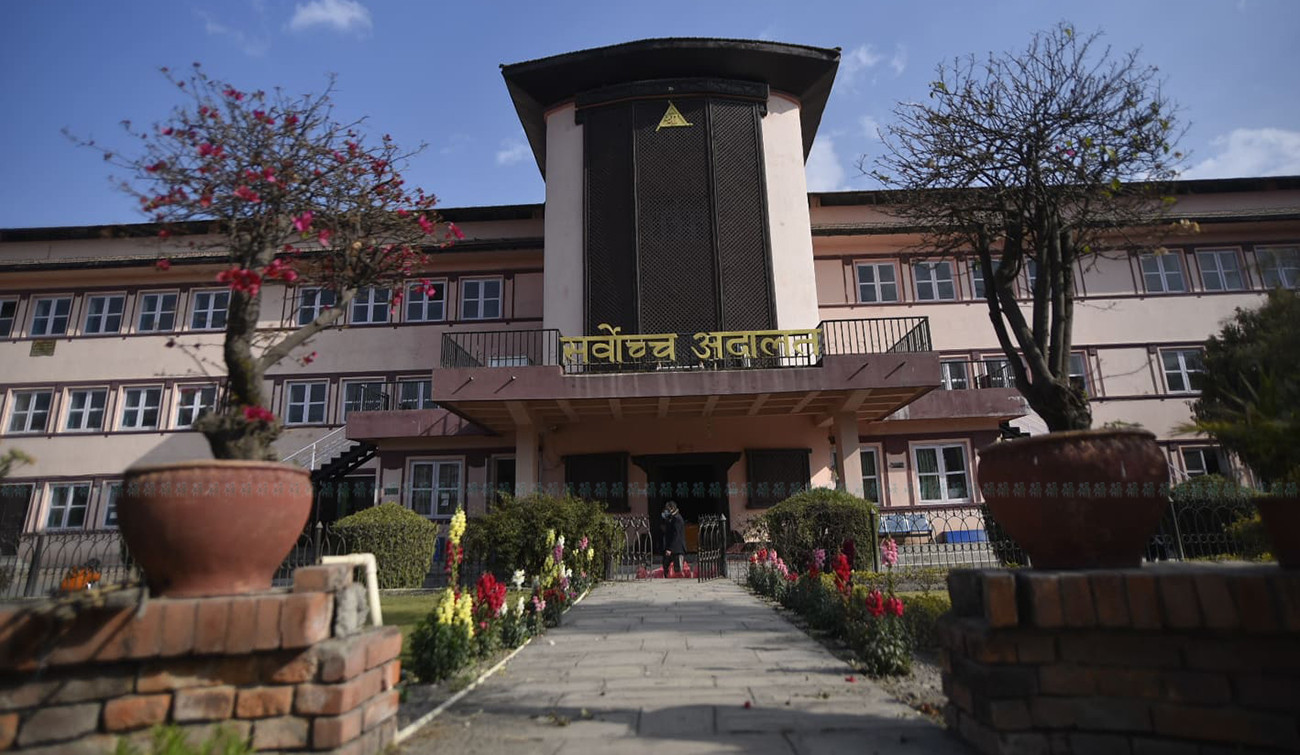The Supreme Court has issued a mandamus order to enact a separate law for the protection and promotion of the national animal, the cow.
The full text of the decision, made by a bench of Justices Kumar Regmi and Sunil Kumar Pokharel on November 11, 2024, has been made public.
Kedar Sharan Bikal, chairman of the Collective Gaushala Management Committee in Waling, Syangja, Humanath Sharma Paudel, and Ramhari Gyawali of Gulmi had filed a writ petition.
The Office of the Prime Minister and Council of Ministers, the Ministry of Federal Affairs and General Administration, the Ministry of Home Affairs, the Ministry of Finance, the Ministry of Agriculture and Livestock Development, the Ministry of Law, Justice and Parliamentary Affairs, and the Federal Parliament Secretariat were named as defendants in the petition.
The petition stated that the government had not paid attention to the protection of cows.
"The Constitution of Nepal designates the cow as the national animal. However, the government or state has completely ignored the condition of the cow, which is constitutionally recognized as the national animal," the petitioners stated.
They also argued that despite the cow being the national animal, the state has failed to formulate any policy, program, or legislation to pass a law for its protection.
They demanded a mandamus to prohibit leaving cows stray or abandoned, to enact a law for their proper protection and promotion, and to establish and operate state-run gaushalas (cow shelters).
The mandamus noted that the government has not made separate legal provisions for the protection and promotion of cows, highlighting the need to do so.
"Prepare a bill for the National Animal Cow Protection and Promotion Act and present it in the Federal Parliament for the proper protection and promotion of the national animal, the cow," the Supreme Court's mandamus stated.
The Supreme Court issued the mandamus with 10 points.
In the second point, it ordered the updating of the inventory of immovable assets registered in the names of gaushalas across the country, ensuring their proper protection and use solely for cow rearing and conservation.
The third point of the mandamus directs local levels to request land from the federal government for operating gaushalas, with arrangements to provide the necessary land.
"To control stray and abandoned cows and calves, each local level should construct and operate at least one gaushala or facilitate its operation through farmers' groups, non-governmental organizations, or local temples. Make arrangements to keep stray cows and calves in these gaushalas and provide them free of cost to farmers’ groups or livestock rearers interested in rearing cows," the fourth point of the mandamus stated.
The mandamus also ordered raising public awareness about the economic benefits of cow rearing, the essential role of cow dung and urine in promoting organic agriculture.
It also ordered governments of all three levels to take necessary initiatives to promote the significant positive impact of dairy products on human health and encourage their consumption.
In the sixth point, it directed providing free insurance for cows reared at home and coordinating among all three levels of government for the marketing of milk, yogurt, ghee, and other dairy products.
The seventh point instructed preparing details of indigenous cow breeds and raising awareness about them.
In the eighth point, a mandamus was issued in the name of the Ministry of Education to prepare an appropriate curriculum on the importance of the national animal and include it in educational programs at all levels.
It also directed the police and the Office of the Attorney General to investigate and accept complaints regarding cow slaughter.
The court also prohibited the export of cows and calves abroad, except for rearing purposes.
Finally, the mandamus ordered prioritizing cow rearing, protection and promotion of cows, and the standardization, storage, sale, and market management of food and other products derived from cows when providing subsidies in the livestock sector.

